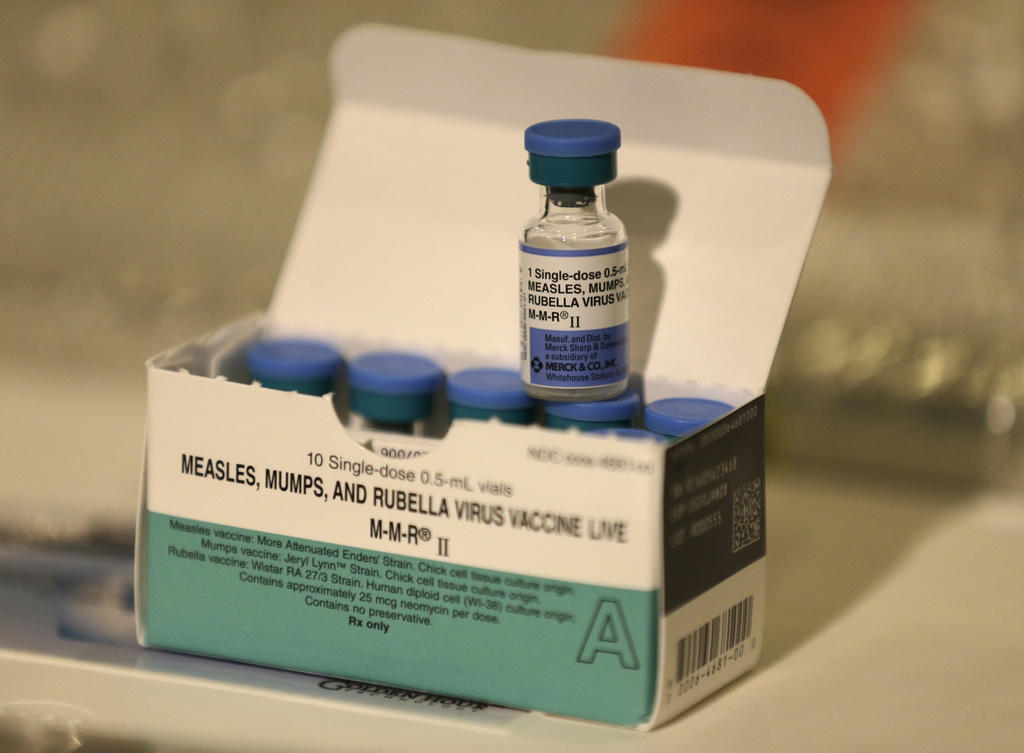
Switzerland sees sharp rise in measles cases

The number of reported cases of measles is climbing in Switzerland – almost 100 since the start of 2019.
The Federal Office of Public Health External linksaid on Monday that 55 cases of measles were reported in March, nearly twice the number of cases registered at the beginning of the year.
In all, 97 cases have been recorded in 2019, the office said. This compares to 15 cases during the same three-month period at the start of last year. In 2018, there were a total of 48 measles cases, and 105 in 2017.
Measles is a highly contagious viral disease that can cause hearing loss and brain disorders in children and, in severe cases, can kill. It spreads easily through the coughs and sneezes of infected people and can lead to diarrhoea, ear infections, pneumonia, blindness, inflammation of the brain and even death. It can strike people of all ages.
In the World Health OrganizationExternal link (WHO)’s European region, which covers nearly 900 million people, some 82,600 in 47 countries contracted measles last year – the highest number this decade. Of those, 72 cases were fatal. The worst-affected countries were Ukraine (53,000 cases), followed by Serbia (5,076), Israel (2,919), France (2,913), Russia (2,256), Italy (2,517), Georgia (2,203) and Greece (2,193). Six of the 53 countries did not report.

More
Why some Swiss people still get measles
The record number in Europe is partly due to a growing number of pockets where parents are refusing vaccination for their children, the WHO said in February. In some countries, anti-vaccine campaigners seek to dissuade parents from getting their children immunised, despite strong scientific evidence that vaccines are safe and effective. At the same time, the WHO said, record numbers of children are getting the vaccine – offering hope that the rise in infections may not last.
In 1987, the Swiss Federal Office of Public Health announced a vaccination strategy that it hoped would eradicate measles by the year 2000. To eradicate measles, the WHO advocates a vaccination coverage of 95% of the population. Swiss coverage is currently below this at 87% for two-year-olds and 93% for 16-year-olds.
In Switzerland, there are large differences between cantons, with more urban cantons reaching a near 100% level, while rural areas score much lower, with the lowest vaccination rate in the tiny canton of Appenzell Inner Rhodes at 82%. (SRF/swissinfo.ch)

In compliance with the JTI standards
More: SWI swissinfo.ch certified by the Journalism Trust Initiative






























You can find an overview of ongoing debates with our journalists here . Please join us!
If you want to start a conversation about a topic raised in this article or want to report factual errors, email us at english@swissinfo.ch.